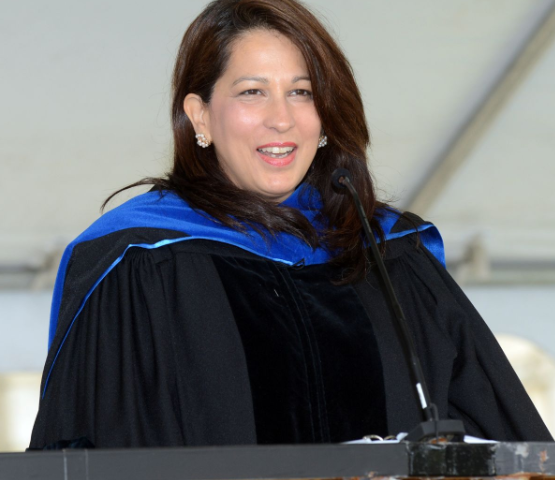The City University of New York (CUNY) has received funding via the Coronavirus Aid, Relief, and Economic Security (CARES) Act, a federal bill that allocates billions of dollars to higher-learning institutions. It should be very helpful in the necessary transition to a new normal, but the big question is: Where is that money going towards, if not the students and faculty?
According to a press release on the CUNY website, the CARES Act gets its financing from numerous sources, including “the Governor’s Emergency Relief Fund, the Elementary and Secondary School Emergency Relief Fund, and the Higher Education Emergency Relief Fund (HEERF).”
The Act’s funding is dispersed in two ways: “$12.56 billion will be distributed to institutions using a formula based on student enrollment,” the press release explains. “Of the amount allocated to each institution under this formula, at least fifty (50) percent must be reserved to provide students with emergency financial aid grants to help cover expenses related to the disruption of campus operations due to the coronavirus pandemic.”
In simpler terms, the money is intended for the betterment of students’ quality of life by providing housing, technological resources, health care and/or accessing living essentials (i.e. food, water, child healthcare products, etc.)
But here at Queens College, in the span of time from school abruptly ending in mid-March to the beginning of the fall semester this September, faculty and students hardly knew of the Act’s existence, much less where its cash strayed on the way from CUNY to them. One of the groups on campus most in need of aid are adjunct professors, who have recently taken to protesting the budget cuts disarraying their academic lives.
English Associate Professor Karen Weingarten, an outspoken advocate for QC’s adjunct professors, commented on her experience regarding the pandemic’s effect on classes. “I find it appalling that CUNY received $132 million that has mostly not yet been spent when our class sizes at Queens College have increased, and The Hub and IT could also so clearly use extra staffing as well,” she stated. “I’ve received numerous complaints from students about how difficult it has been to reach people in both those offices at a time when their assistance is needed more than ever.”
One of the most prominent voices condemning the Act is Congress itself. In a letter directed to CUNY Chancellor Félix V. Matos Rodríguez and Board Chairperson of the CUNY Board of Trustees William C. Thompson Jr., Congress called the pair out for the unfortunate fact that CUNY has, amidst the pandemic, laid off nearly 3,000 employees: “Hundreds of employees who received health insurance through their CUNY employment will lose health coverage, which is especially egregious during a pandemic,” the letter grimly states. “We are deeply concerned that CUNY is conducting mass layoffs when so much federal funding was allocated to avoid loss of employment and subsequent loss of healthcare insurance for hundreds of our constituents.”
Signed by eight members of the House of Representatives, the letter reprimands CUNY for not taking better care of its employees and students, taking special note to emphasize the aforementioned predicament that adjunct professors currently find themselves in, with hopes for a better future: “New York will need CUNY more than ever as we seek to rebuild the economy and create a more just world.” They also mention that “reduced course offerings, fewer faculty and over-sized classes will leave CUNY under-prepared to support the students whose need for support is greatest.”
The letter also stresses CUNY’s role in the ongoing push for racial equality: “A strong and fully staffed CUNY is a unique and essential resource for New York’s recovery and an essential part of addressing systemic racism.”
With thousands of adjunct faculty laid off, it begs the question: Why was CARES Act funding not allocated to save adjuncts? David Gerwin, professor in secondary education and chair of the Professional Staff Congress (PSC) chapter at Queens College spoke to The Knight News to explain the complexities of the issue at hand.
“There are not enough full time faculty at CUNY. Period. If you had more full time faculty all of the things that we do besides teaching, running programs, departments, developing curriculum, would be done by more people.” Gerwin also questioned CUNY’s public statement regarding the adjunct layoffs, claiming that “we can do more with less” in response to a lawsuit filed by the PSC earlier this summer.
Jane Guskin, adjunct professor in urban studies and PSC delegate agreed with Gerwin. “I think it’s inexcusable to lay off anyone at CUNY, especially when enrollment is not decreasing. Summer enrollment was up 30% at Queens College, freshman enrollment is up, and graduate enrollment is up.”
Guskin has also told The Knight News that “retention has taken a hit, but half of the CARES Act money was earmarked for direct aid to students, so the administration could have addressed retention head-on by directing some of the money to support students at risk of dropping out because they can no longer afford to attend, or providing free housing at the Summit for those who need it.
“There should have been broad consultation with students, staff, and faculty about how to use the funds. Then the money could have been used swiftly to ensure that students get what they need. That includes expanding instructional and support staff to help students navigate academic, financial aid, and housing bureaucracies,” Guskin added, calling out CUNY for its lack of transparency with its community.











